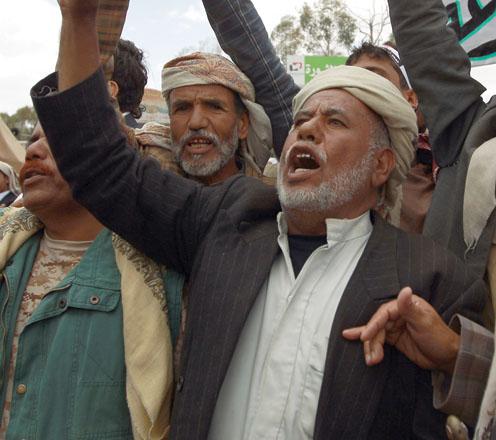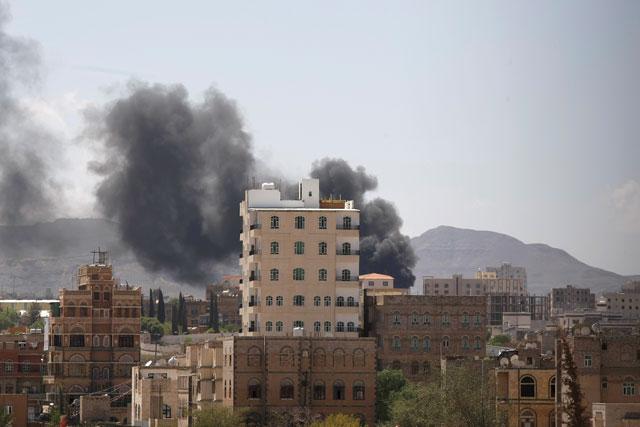You are here
Yemen gov’t offers to resign to end Houthi protests — source
By Reuters - Aug 23,2014 - Last updated at Aug 23,2014

SANAA — Yemen's government offered on Saturday to resign within a month and to review an unpopular decision to cut fuel subsidies, in an attempt to end protests by the Shiite Houthi movement, a government source told Reuters.
Tens of thousands of Yemenis massed in the capital Sanaa on Friday in a protest called by the Houthis to demand the government's resignation and a reversal of the subsidy cuts.
The rally came at the end of a week of demonstrations that have piled pressure on President Abed Rabbo Mansour Hadi, who has struggled to keep order in the US-allied country which borders major oil exporter Saudi Arabia.
The source, who is from Yemen's presidential committee, said officials had handed to the Houthis a draft proposal that includes an offer to form a new government within a month and to set up an economic committee to review the fuel subsidy issue.
"This proposal will take effect in exchange for the Houthis removing their camps from Sanaa, they can either respond or leave the capital if negotiations fail," said the source.
There was no immediate response to the offer from the Houthis, who have been fighting for years for more power for their Zaydi Shiite Muslim sect in north Yemen.
However, another source from the presidential committee told Reuters that they had received a positive response from the Houthis and would hold a final meeting with them later on Saturday.
“We will meet with them again tonight and the signing of agreement will be tomorrow morning,” said the source.
Public anger over the subsidy cuts has helped bring people onto the streets, demanding participation in a future government as the majority Sunni country moves towards a federal system that devolves more power to regions.
On Friday, the movement set up tents near the interior, telecommunications and electricity ministries in a side street that leads to Sanaa’s airport, saying they would stay until their demands were met.
Yemenis are unhappy about the government’s decision in late July to cut energy subsidies to reduce its budget deficit, a move which led to a rise in fuel prices.
The government spent about $3 billion on subsidies last year, nearly a third of state revenues.
A previous attempt to cut subsidies, in 2005, led to unrest that left about 20 people dead and more than 200 wounded. The reform was cancelled.
Related Articles
Yemen's government and Shiite Muslim Houthi rebels pursued talks on Thursday to end a crisis that has seen weeks of sometimes bloody protests in the capital, after the two sides gave conflicting accounts of progress in the negotiations.
Armed Shiite rebels pushed into Yemen's capital Sanaa after clashing with the army in the city's northwest outskirts on Thursday, security sources and residents said, in an escalation of weeks of fighting and protests.
Yemen's prime minister submitted his resignation to President Abed Rabbo Mansour Hadi on Sunday amid chaos over reported advances by Shiite Muslim Houthi rebels on some military buildings and government offices in the capital.


















